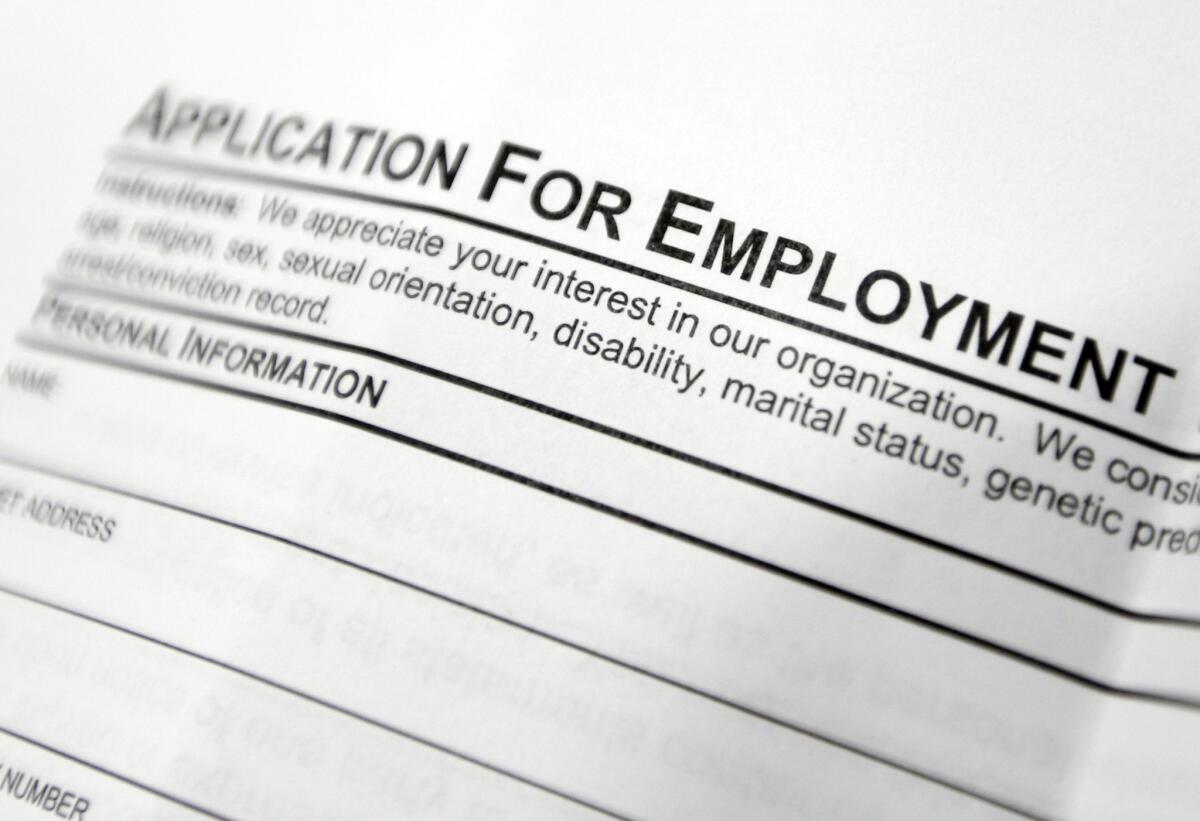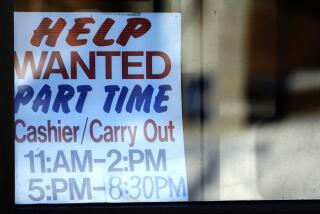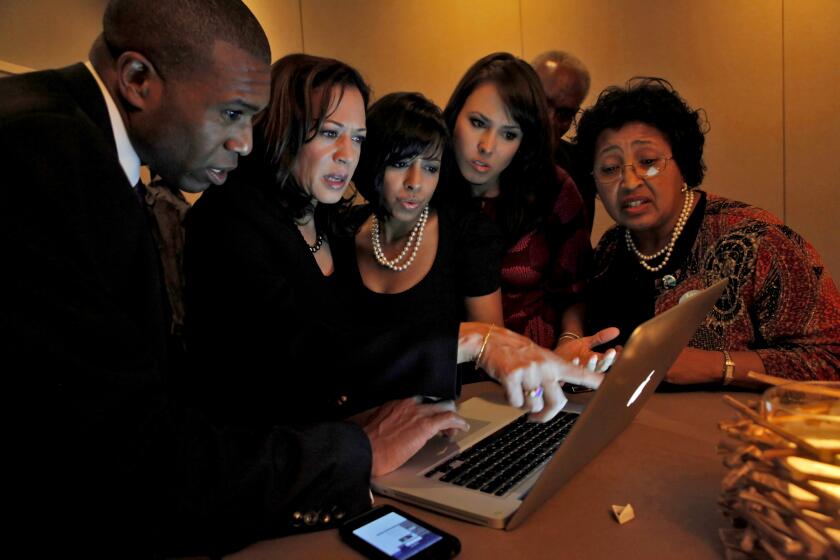Opinion: The Great Recession: The financial crisis that keeps on giving

The Great Recession has lasted a lot longer for some than for others.
A new survey from Rutgers University’s John J. Heldrich Center for Workforce Development found that “one in five workers - or nearly 30 million people - say they were laid off from a job in the past five years,” dating back to the end of the recession in June 2009. “Nearly 4 in 10 of these laid-off workers say they searched for a job for more than seven months before finding another one; one in five workers laid off during the past five years never found another job.”
And the jobs found by the lucky often were worse jobs than they had lost. Some 44% said the new job was inferior to the lost job, a reflection of the economic recovery in which white-collar mid-wage jobs disappeared after the financial collapse, but as the economy regained steam the new jobs came predominately in the lower-paying service sector.
Workers over age 45 have had more trouble finding work, as have African Americans. Still, it was a broad impact. For many, family income and lifestyle have yet to recover – and likely never will.
Even among those who managed to hold onto the jobs, more than one in four said the recession led to a major change in their standard of living. One-third of those who were considered long-term unemployed reported their finances were “devastated” with “a major and permanent change in their lifestyle,” with many missing mortgage or rent payments, borrowing from friends and relatives, and selling possessions to raise cash.
Among all Americans, those who kept their jobs as well as those who lost them, more than 40% said they have less income and savings now than they did five years ago. Only 30% said they had more.
There are a lot more slices of the data to contemplate, including a general lack of confidence by about half of the respondents that their personal financial outlooks will improve much.
So who do the respondents think should guide the nation out of this mess? Some 45% said the government should act rather than wait for private-sector initiatives, including loosening 401(k) restrictions on withdrawals used for retraining and education programs (though the wisdom of taking from your retirement fund is questionable) and offering tax credits to employers to create jobs.
Interestingly, only one-third supported better and longer-lasting unemployment benefits - though the approval rate for that jumped to over half for the folks who were relying on the benefits.
So while Wall Street might be soaring, most of the rest of us are not.
Follow Scott Martelle on Twitter @smartelle.
More to Read
A cure for the common opinion
Get thought-provoking perspectives with our weekly newsletter.
You may occasionally receive promotional content from the Los Angeles Times.







